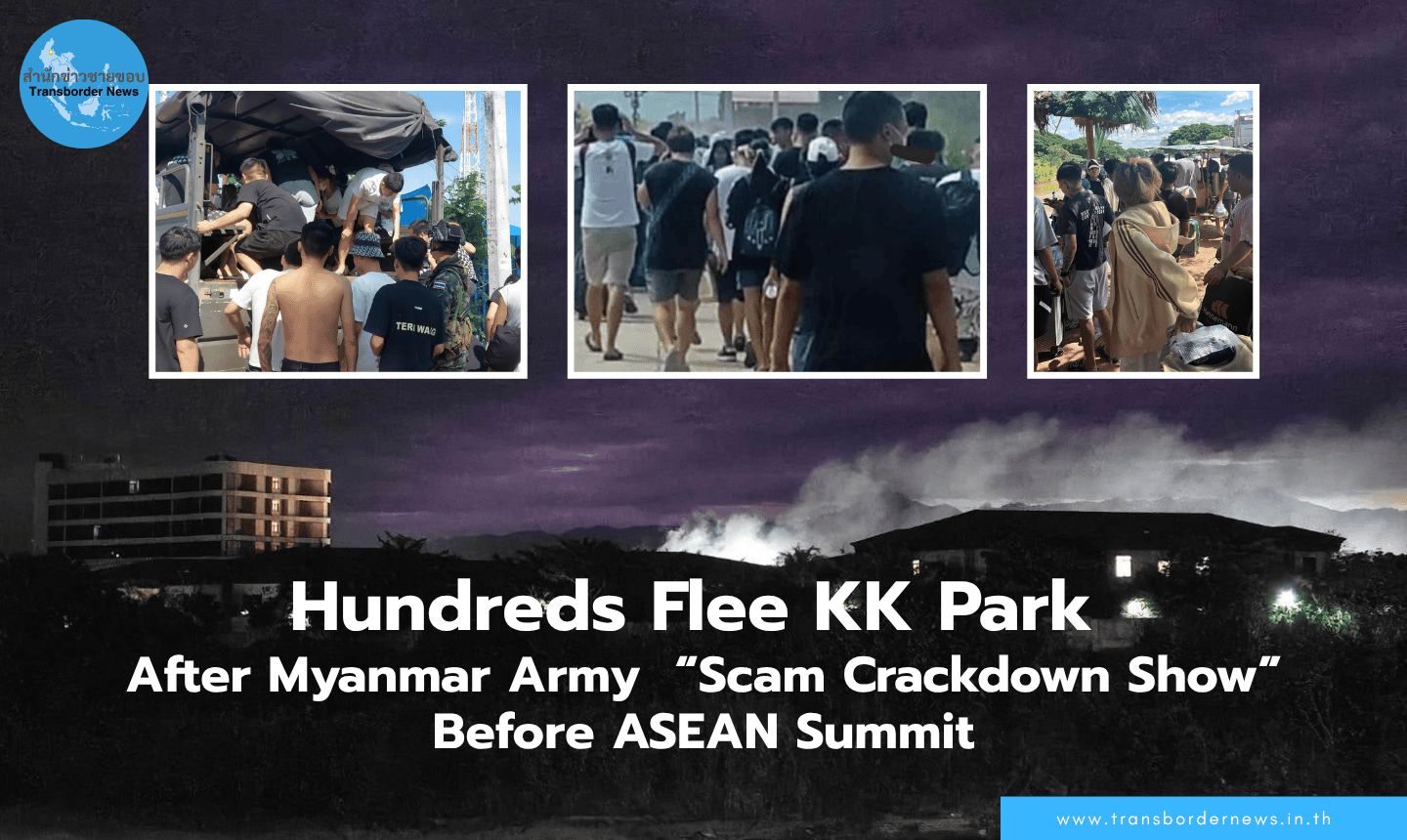
Transborder News, Chiang Rai, Thailand – April 27, 2025 — Communities in Chiang Rai and Chiang Mai provinces are voicing growing concerns over heavy metal contamination in two major rivers, the Kok and Sai, with potential cross-border environmental impacts linked to mining activities in neighboring Myanmar.
At a public forum held at Mae Fah Luang University’s School of Social Innovation, Lt. Gen. Natthapong Prawkaew, Director-General of the Department of Border Affairs and Secretary of the Thai-Myanmar High-Level Committee, listened to firsthand accounts from local leaders, academics, community representatives, and civil society organizations. The event provided a platform for residents to share their fears about worsening pollution in the river systems that are vital for agriculture, fisheries, tourism, and daily life. The forum also brought together key stakeholders including former Mae Sai Municipality mayor, Thaton Subdistrict Administrative Organization, faculty members, and media outlets.
A representative from the Shan Human Rights Foundation presented an overview of intensified mining activities in Myanmar’s Shan State, where numerous mining projects—particularly for rare earth minerals, manganese, coal, and gold—have been authorized since 2021. These operations, many of which are backed by Chinese, Australian, Russian, and Italian investors, are part of broader infrastructure and investment strategies tied to China’s Belt and Road Initiative. Mining is taking place upstream of the Kok, Sai, and Ruak rivers, with notable projects near Mong Hsat and Tachileik. Gold mining alone operates around the clock opposite Thaton subdistrict in Chiang Mai, heavily impacting the river ecosystems.
Environmental concerns include widespread deforestation, sedimentation, and chemical pollution. Reports indicate a surge in manganese ore extraction—rising from 4,900 tons in 2012 to 135,000 tons by 2019—while contamination levels at border customs checks have exceeded Thai safety standards. Local observations over the past year report severe water turbidity and declining fish populations in affected rivers. Cases of arsenic contamination have already been detected in parts of Chiang Rai province.
Participants called for urgent blood testing of residents in high-risk areas and systematic monitoring of soil, groundwater, and river conditions. They also raised alarms about the long-term agricultural impacts due to soil degradation from mining waste, and the declining viability of riverside tourism economies. Contaminated irrigation water and toxic runoff are not just local issues—they risk becoming a wider public health crisis.
Past efforts to resist cross-border projects, such as a proposed coal-fired power plant in Tachileik, succeeded due to strong opposition from Thai communities in Mae Sai. However, speakers warned that mining activities are continuing to expand and the impacts are increasingly crossing into Thai territory.
In response to the growing crisis, forum participants proposed a series of recommendations including the installation of arsenic filtration and water treatment systems, the formation of cross-sectoral coordination mechanisms, the establishment of a dedicated Cross-Border Environmental Response Center, and strengthened information-sharing and diplomatic engagement with Myanmar at community and government levels.
Lt. Gen. Natthapong acknowledged the seriousness of the concerns raised and committed to compiling the information into a formal report for submission to higher authorities and the Thai government, aiming to foster multi-agency collaboration to address the escalating environmental challenges.
See original Thai article https://transbordernews.in.th/home/?p=42266




